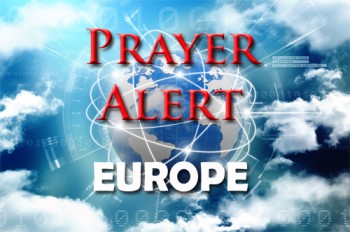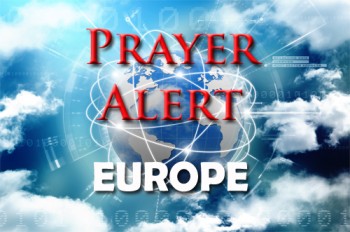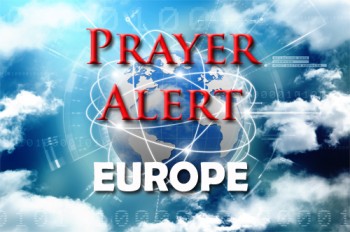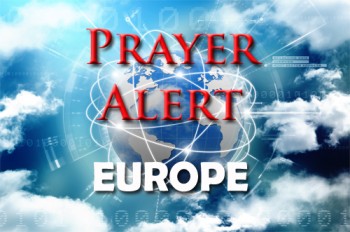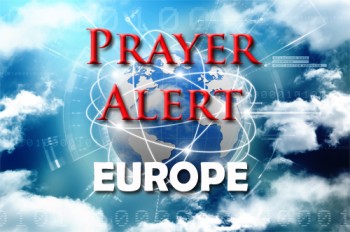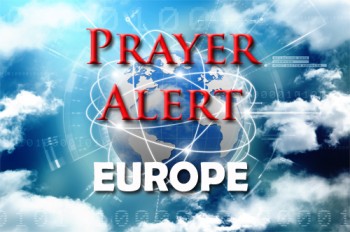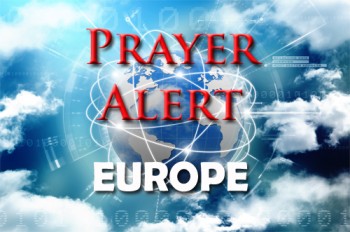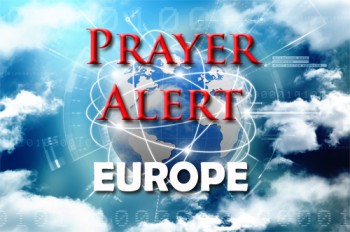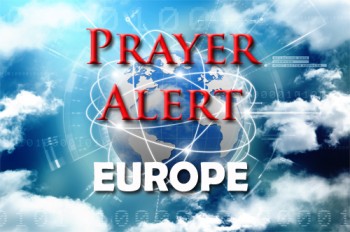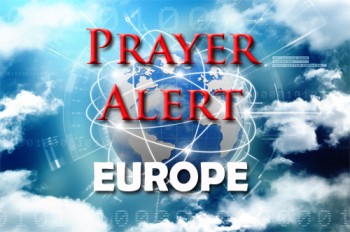Displaying items by tag: Europe
Islam in Europe
In recent years, Algeria, Kuwait, Libya, Morocco, Saudi Arabia, Turkey, Qatar and the United Arab Emirates, among others, have distributed hundreds of millions of euros to finance the spread of Islam in Europe. On March 9, the Danish Parliament voted 79 to 7 to approve a new law banning foreign governments from financing mosques in Denmark. The measure is aimed at preventing Muslim countries from promoting Islamic extremism in Danish mosques and prayer facilities. Denmark joins a growing list of European countries including Austria, Belgium, France, Germany, Italy, the Netherlands, and Switzerland - which have taken varying degrees of action to prevent foreign governments from financing the construction and upkeep of mosques on their territories. Denmark's legislation, sponsored by the ministry of foreign affairs, came into force on 15 March.
Europe: worst droughts in 2,000 years
New research raises the alarm for ecosystems and agriculture. Samples from 2015 to 2018 showed that summer droughts were the most severe Europe has seen in 2,110 years as climate change stokes punishing heat waves. Using data from tree rings in living and dead European oaks going back to the time of the Romans, scientists identified a long-term drying trend that suddenly intensified in 2015 beyond anything seen in two millennia. The researchers said that this cluster of abnormally dry summers was likely caused by human-driven climate warming and changes to the circulation of the jet stream. ‘Climate change does not mean that it will get drier everywhere. Some places may get wetter or colder, but extreme conditions will become more frequent, which could be devastating for agriculture, ecosystems and societies as a whole,’ said lead author Ulf Buntgen, professor of environmental systems analysis of Cambridge University.
Denmark: plans to monitor sermons
Concerns have been raised over new laws being proposed in Denmark to monitor all foreign- language sermons. Under the draft legislation, all sermons in languages other than Danish will have to be translated and submitted to the authorities for inspection. The Danish government says it wants to curb Islamic extremism, but a number of Christian denominations have warned that it poses a threat to religious freedom. Dr Albert Mohler, president of one of the largest evangelical Bible colleges in the USA, described the proposed law as something that was almost ‘unprecedented in modern church history’.
Russia: opposition leader seeking eternal answers
With his life and freedom on the line as he challenged Russia's dictatorial regime, opposition leader Alexei Navalny reached out to Christian leaders in a search for ‘eternal values’. Sergey Rakhuba of Mission Eurasia says Navalny found God as he was facing great challenges and ‘fighting for his life’. Navalny proclaimed that he abandoned atheism and professed faith in God at a court hearing in January. ‘I believe he pronounced the most powerful sermon out of that cage in the courtroom,’ Rakhuba said. ‘He referred to the Bible as an ancient book that the world should adopt and build their rules on for daily living. I think it was the most powerful presentation of the Gospel.’ Navalny quoted Matthew, ‘Blessed are those who hunger and thirst for righteousness, for they shall be filled’.
Prayer for Christian politicians
The following is from Prayer Canopy over Europe: ‘Pray for more Christians to serve the world of politics as advocates and lobbyists in a holistic way. In the past British lobbyists have been the backbone of the profession in Brussels and highly sought after. Pray that Brexit will not diminish the Christian voice in Brussels, but that Christians from other countries will step into the breach. Please pray for Christian politicians to see clearly when their Christian calling needs them to depart from their party line, and for God to send them people to give godly unbiased counsel and to pray for them. Pray that they may be given the strength to resist the temptations which come to those who have an onerous and influential job to do whilst living a private lonely existence away from home and family.
Germany: prayer letter
A March prayer letter for Germany addresses intercessors everywhere to view our identity. Does it come from what we achieve (outwardly) or from our relationship with God (inwardly)? May our identity lie in being sons and daughters of God, hidden with Christ. The significance that He attributes to us could not be greater: chosen by him, created for good works, partakers of his divine nature, raised with him from the dead, seated in the heavenly realms. We are also challenged to consider how we prepare ourselves for the future, especially as we continue to live under the restrictions of the pandemic. Pray and care for those in special need; pray for the kingdom of God to be established within Germany and also in your country.
Russia: bird flu detected in humans
On 21 February WHO confirmed that Russian authorities had reported what is believed to be ‘human infection with avian influenza H5N8’. A WHO Europe spokesperson said. ‘If confirmed, this would be the first time H5N8 has infected people,’. The reported cases were seven workers exposed to bird flocks, according to preliminary information. The statement added, ‘No onward human to human transmission was reported.’
Germany / Belgium: cocaine 'worth billions' seized
Customs authorities in Germany and Belgium have seized a record amount of cocaine - over 23 tonnes - destined for the Netherlands. German officials said the cocaine had a street value of billions of euros. In 2019 the chairman of the Netherlands police union said, ‘We definitely have the characteristics of a narco-state. We're not Mexico. We don't have 14,400 murders. But if you look at the infrastructure, the big money earned by organised crime, the parallel economy, yes, we have a narco-state’. A 28-year-old man suspected of involvement in the cocaine trafficking was arrested on 24 February in the Netherlands. In 2020, 102 tonnes of cocaine heading for Europe was intercepted. Pray for the capture of powerful drug-trafficking gangs from Brazil and Paraguay who are running many of the smuggling operations to ports in Europe.
Czech Republic: state of emergency
The Czech government re-declared a state of emergency to tackle the coronavirus pandemic in defiance of the lower house of Parliament, which refused the minority government’s request to extend the powerful tool. The state of emergency gives extra powers to impose nationwide restrictions and limit people’s travel and rights. According to the European Centre for Disease Prevention and Control, the republic’s rate of 915 new confirmed cases per 100,000 people in the previous two weeks is the second worst per capita in the EU after Portugal. Despite the dire situation, some lawyers and politicians, including the Senate speaker, say the government’s move violates the country’s constitution. The government denies that, saying its legal advisers support such a solution. Meanwhile Germany has implemented tight border controls on its frontiers with the Czech Republic and Austria’s Tyrol province to stem the spread of variants.
EU: Covid vaccination challenges
Many are now saying the vaccination rollout has been plagued by bureaucracy, poorly-negotiated contracts, penny-pinching, blame-shifting, and secrecy. The result is a shortage of vaccines, and an immunisation crisis On 17 February Brussels announced it is now set to almost triple its orders of Moderna’s coronavirus vaccine as part of an EU push to respond to the emergence of new variants and the possible need for booster shots. Deliveries under the new deal are unlikely to ease the current short-term vaccine supply squeeze but it would be delivered between April and June.
